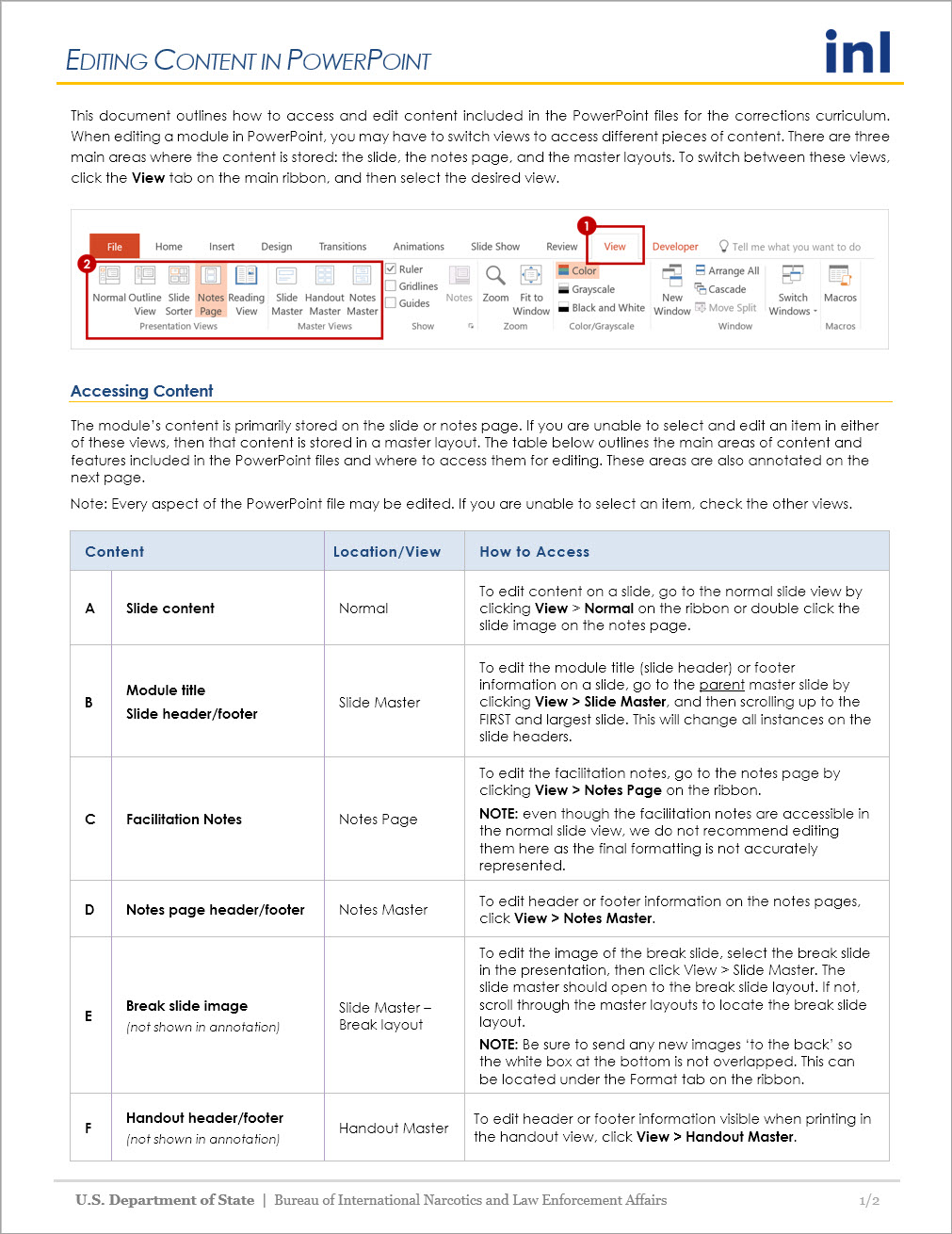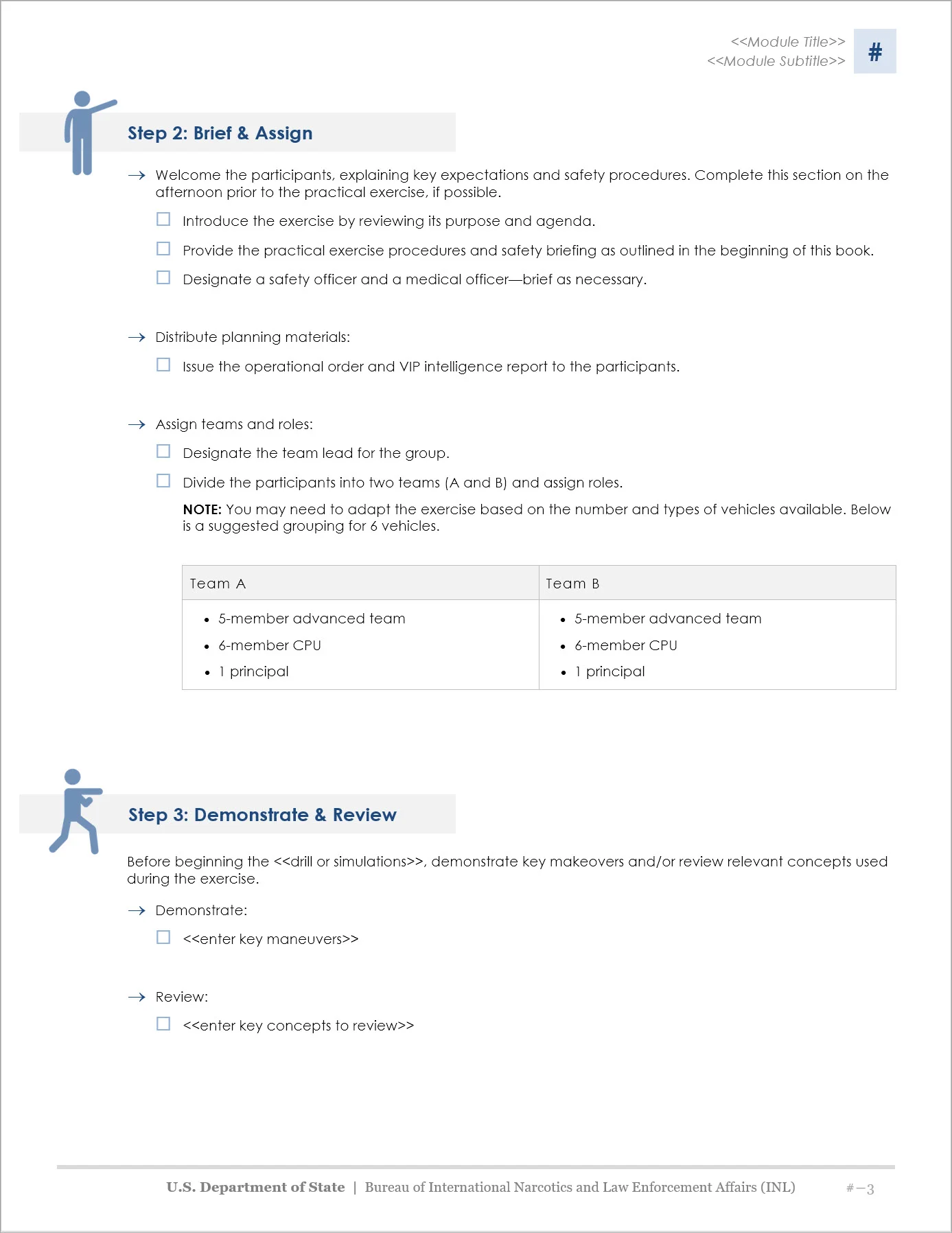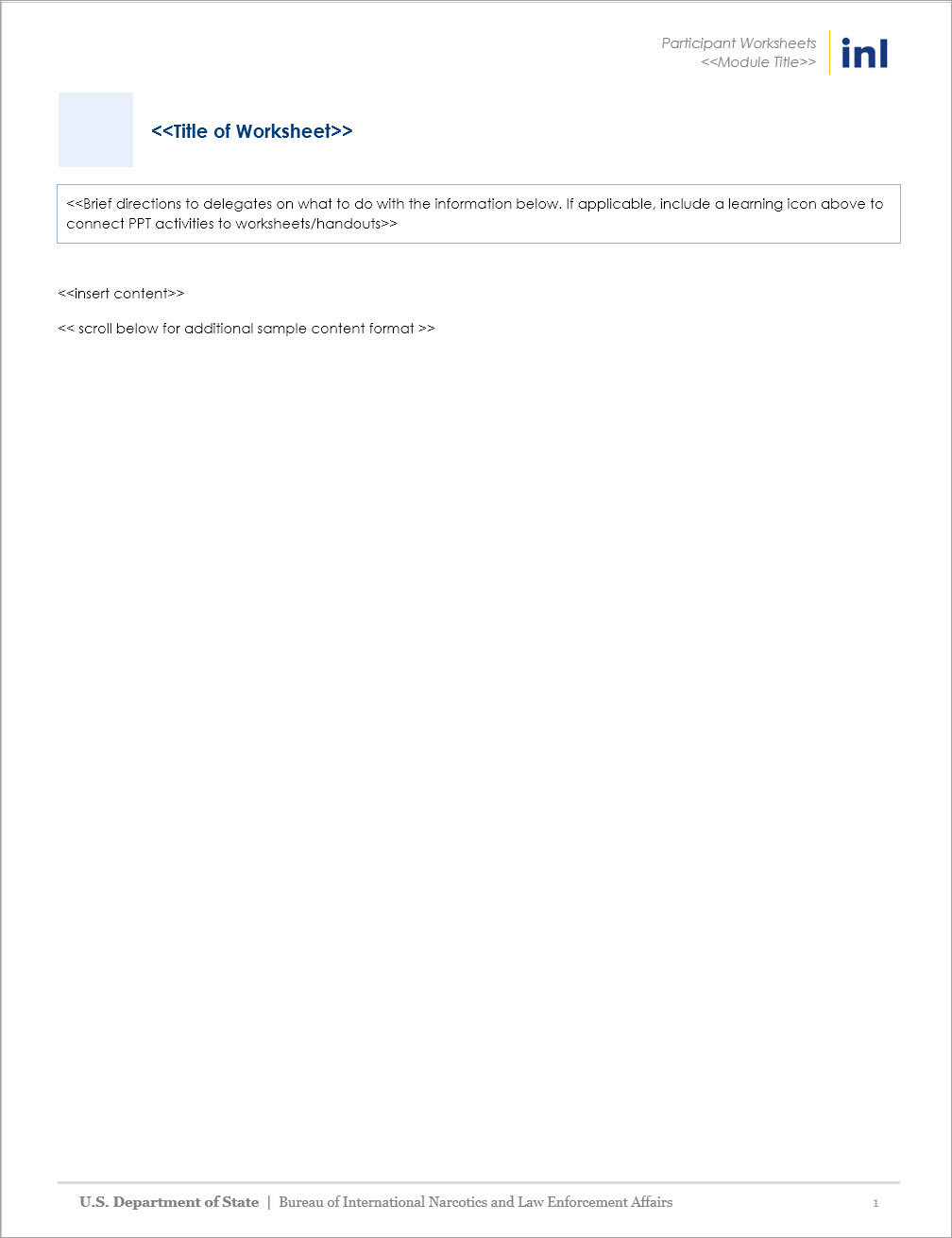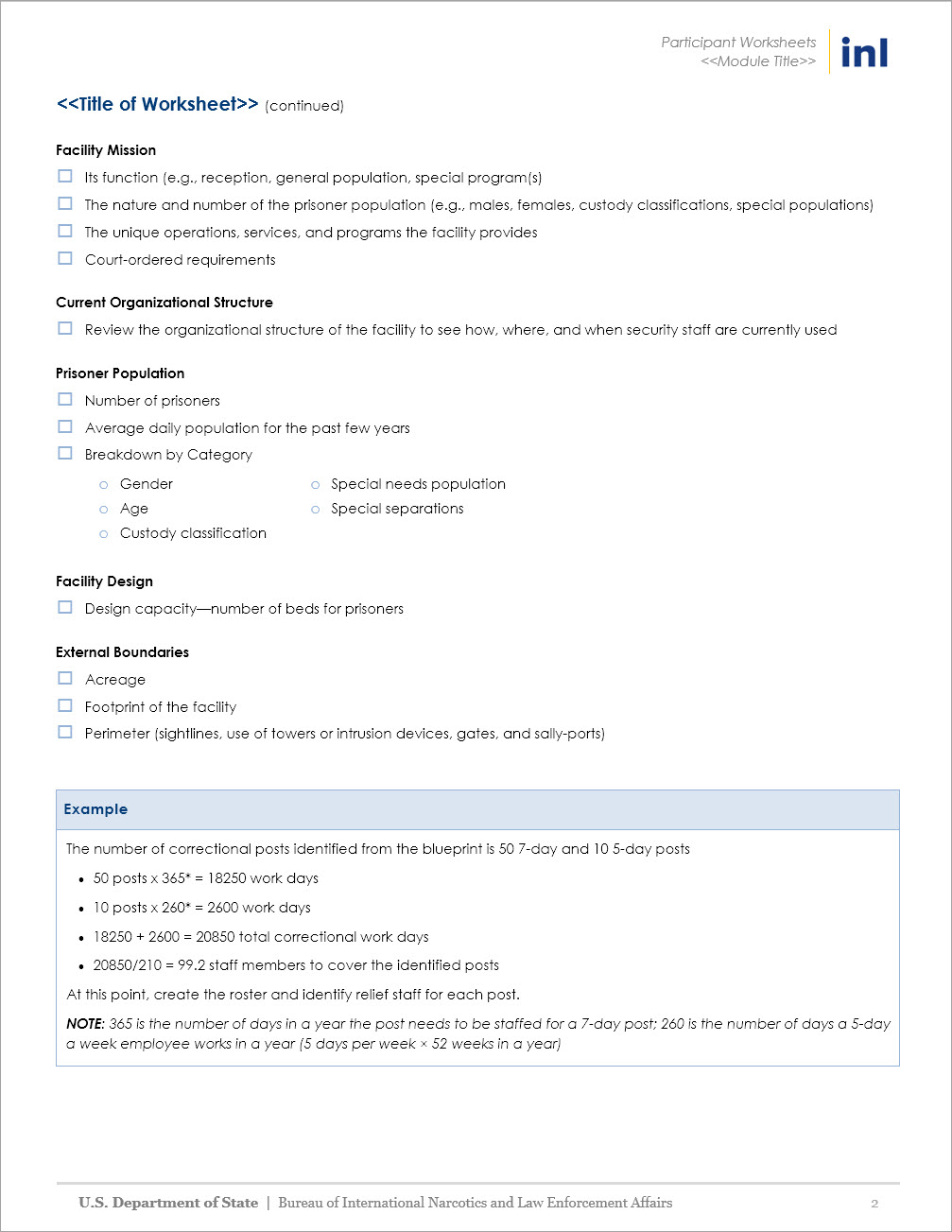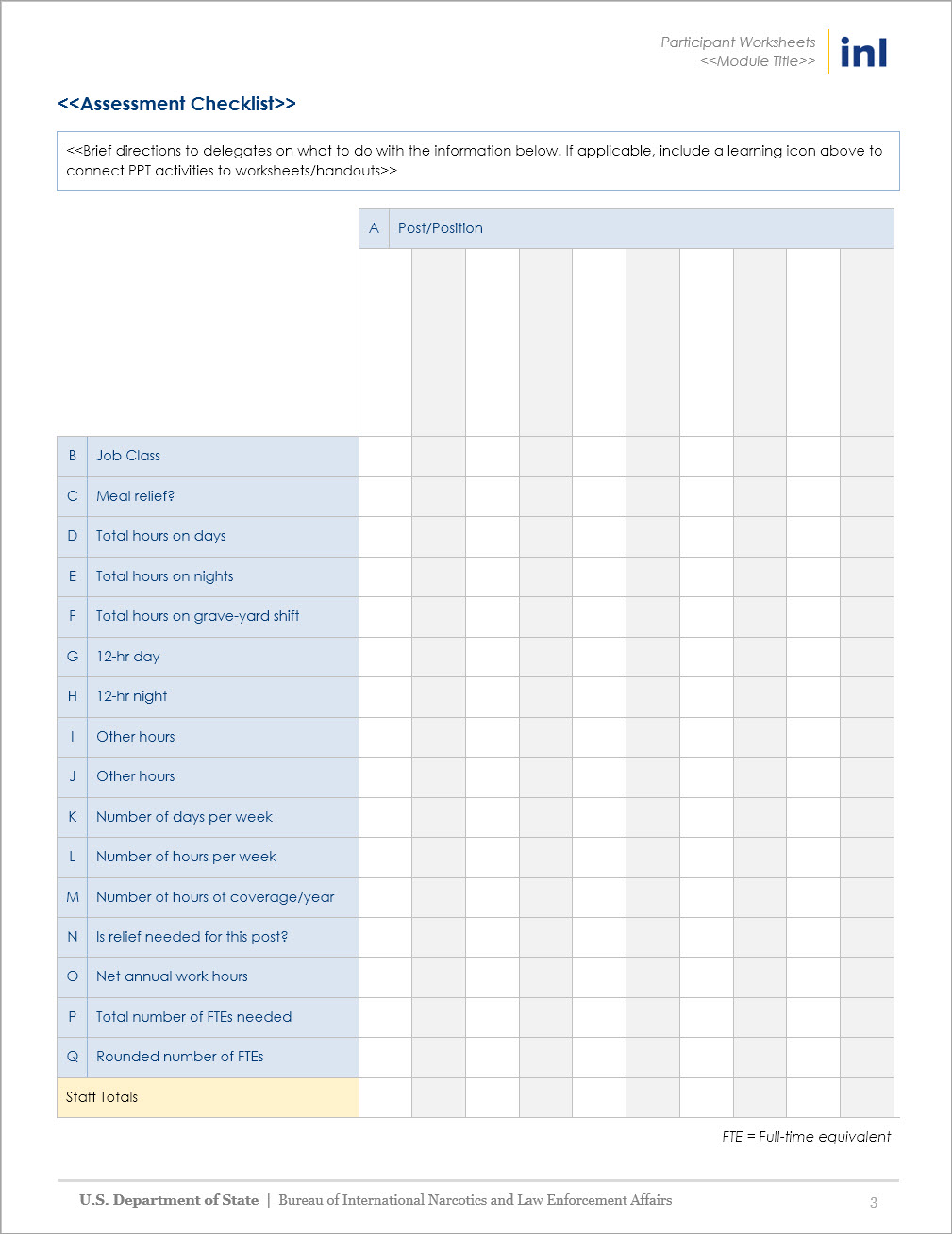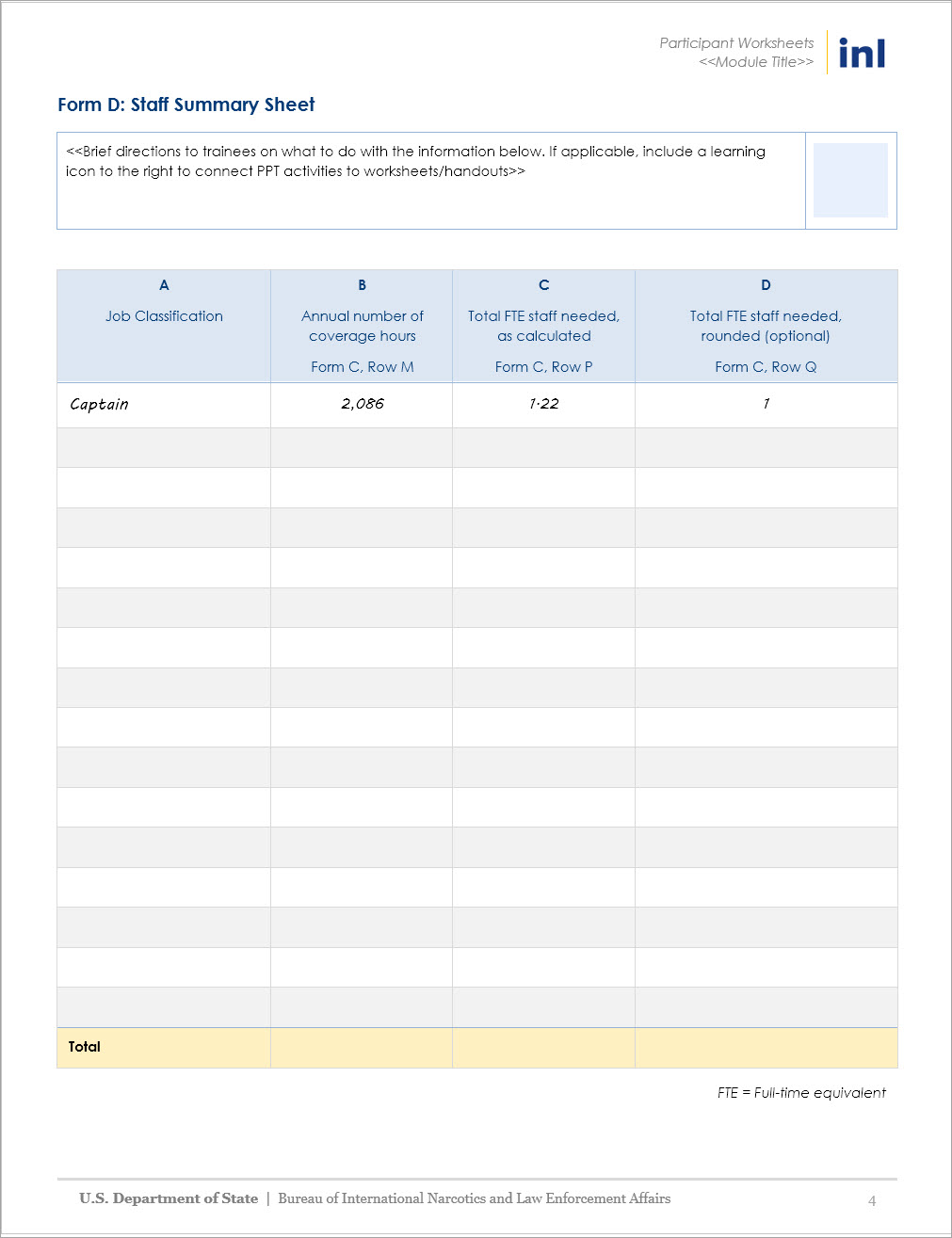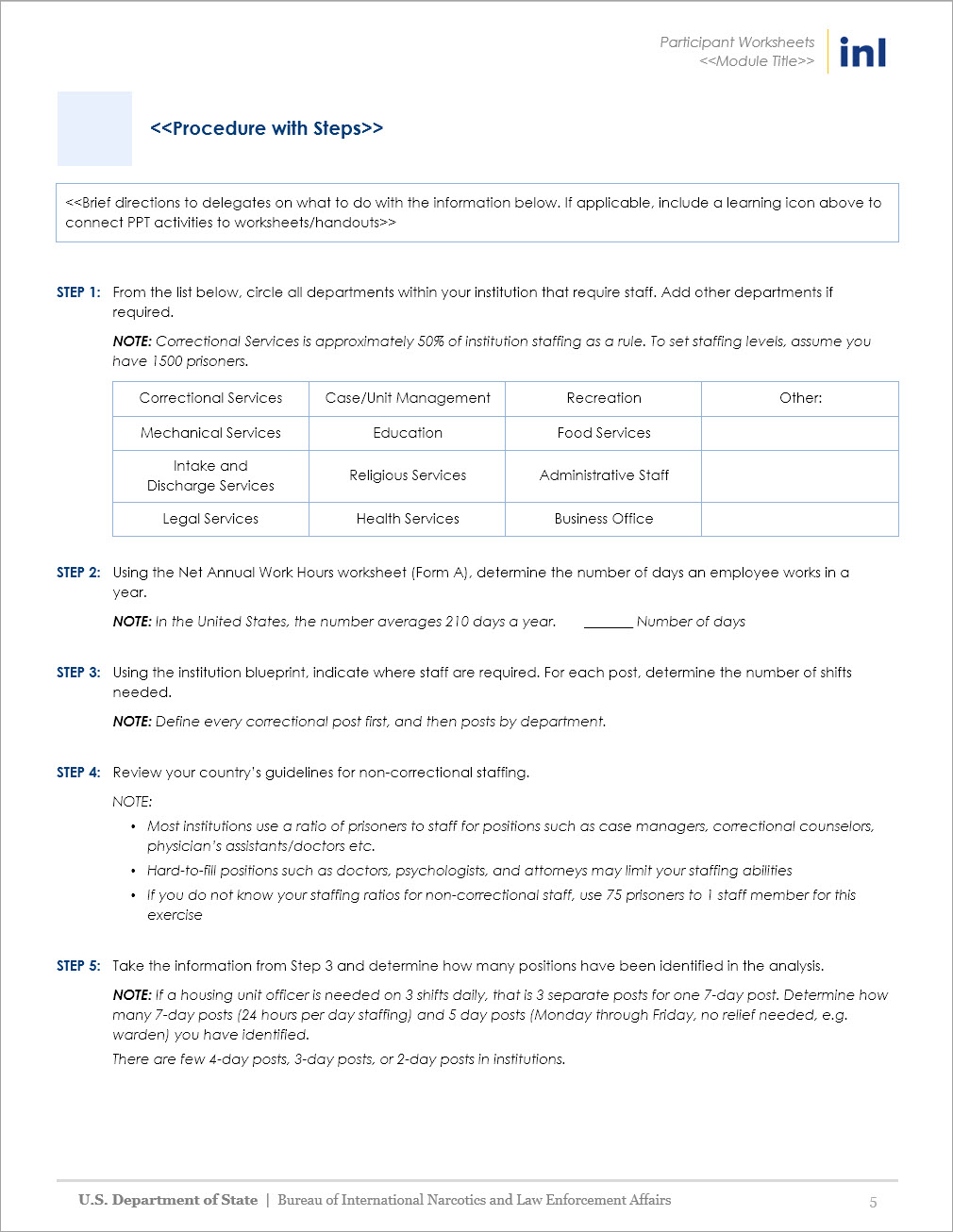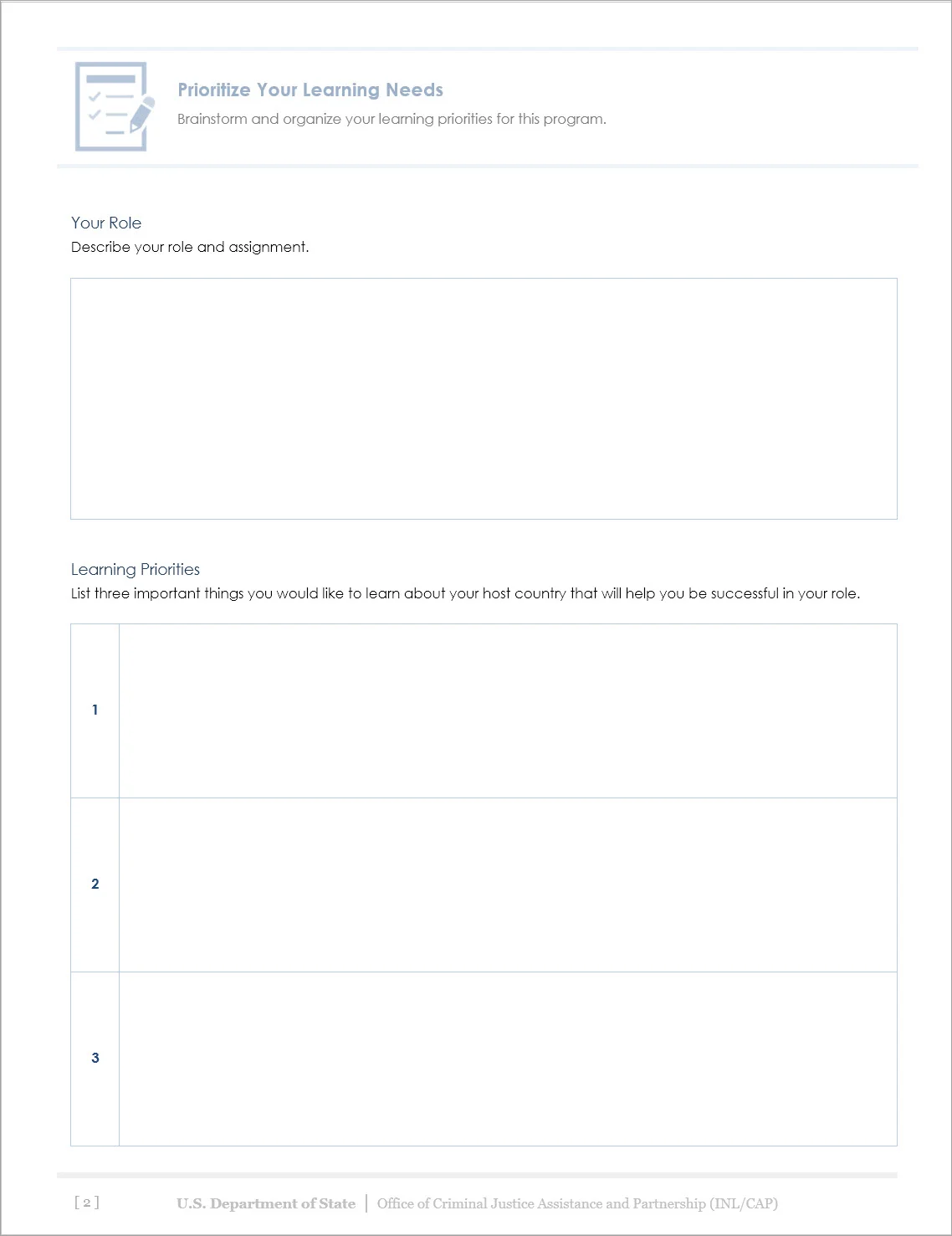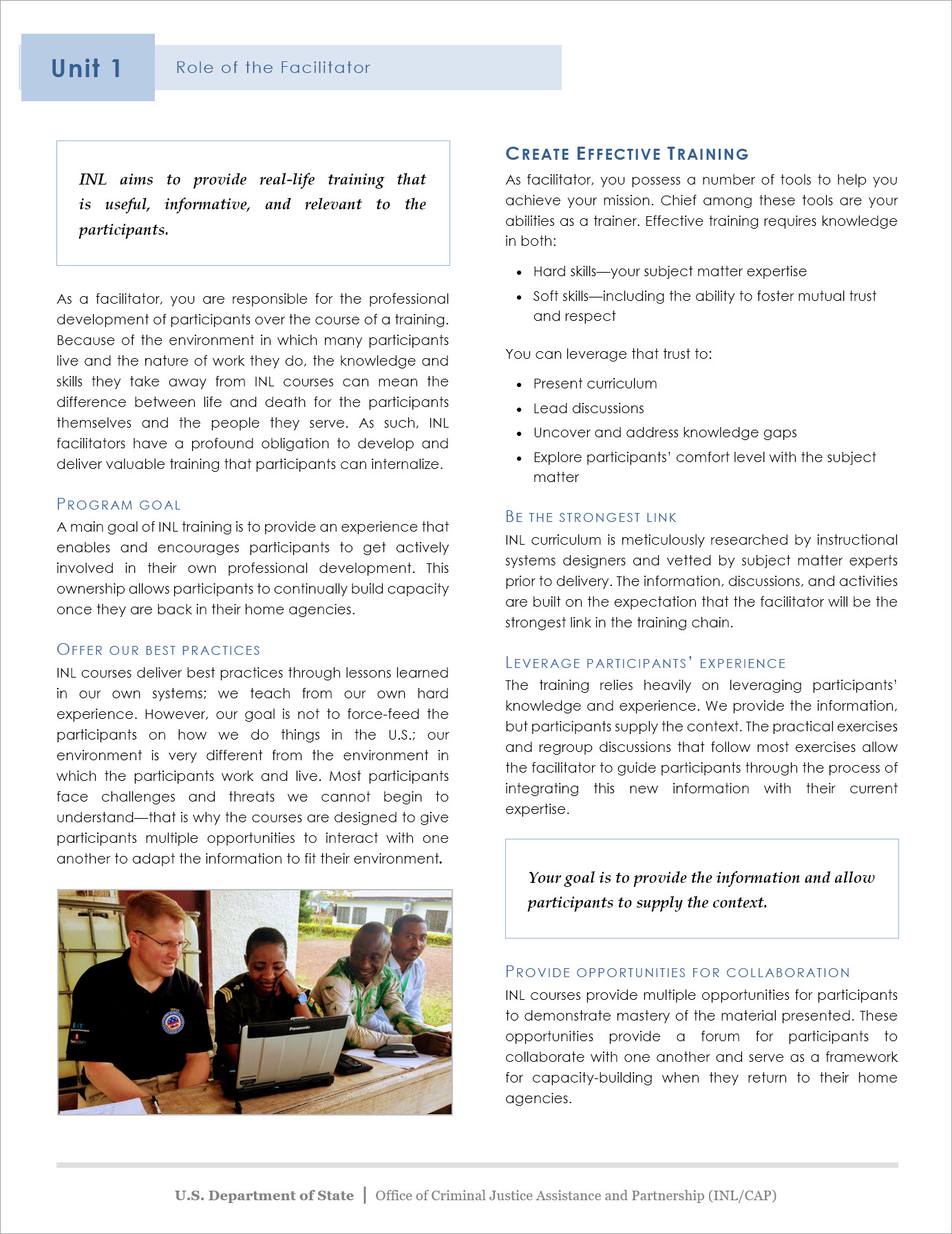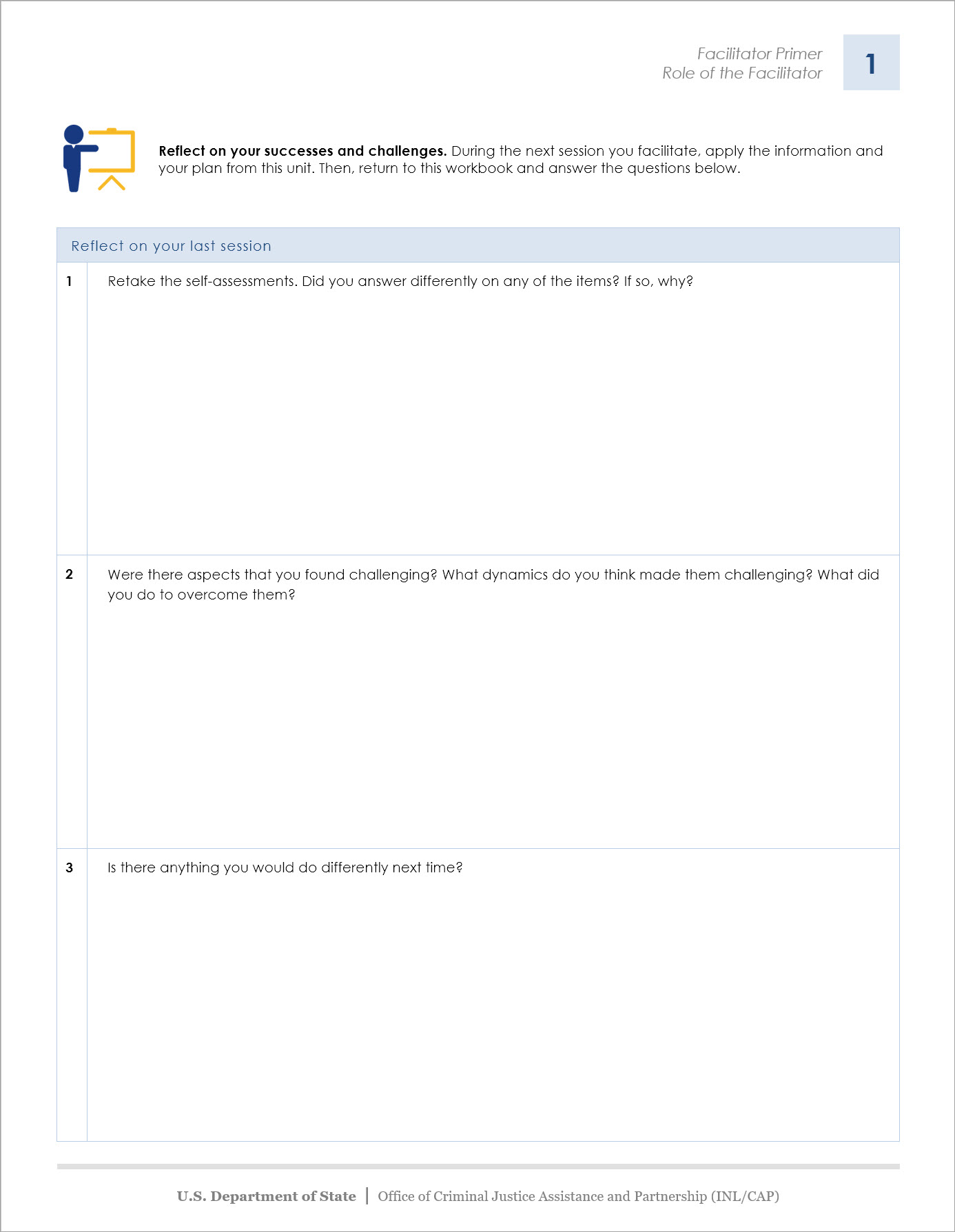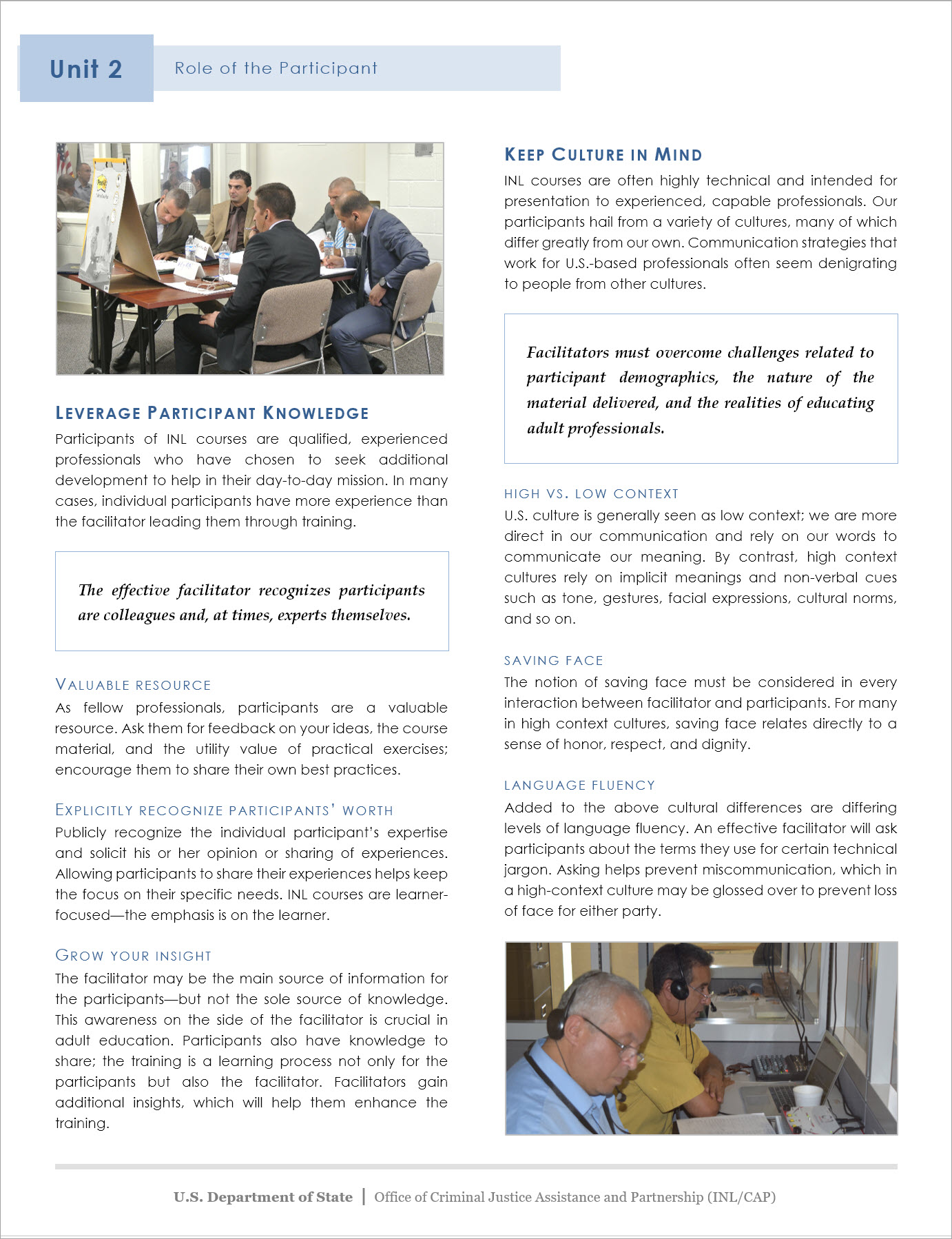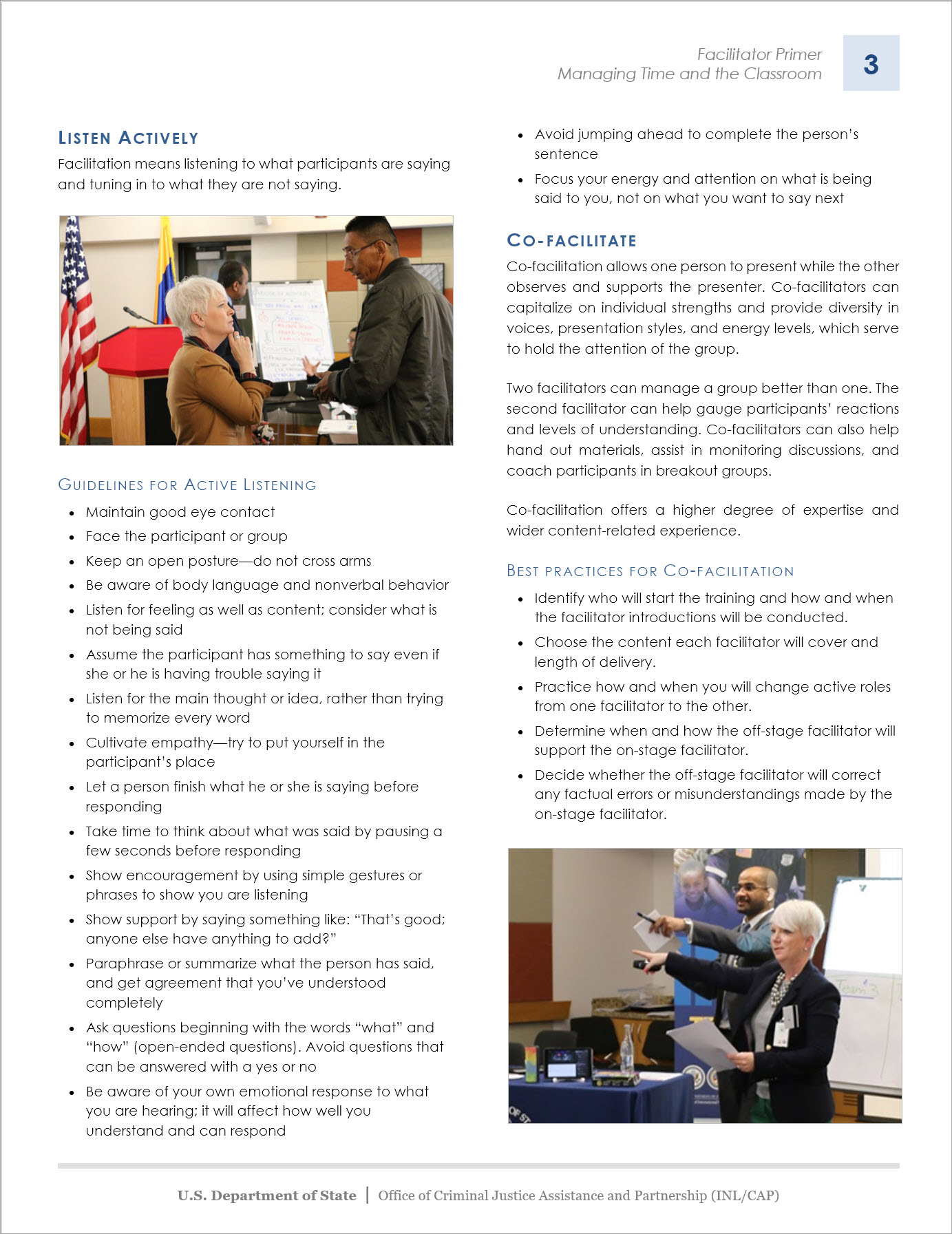Standalone Materials
Various Performance support materials (2011)
Office of Justice Programs, U.S. Department of Justice
Challenge: The training department was set up to offer help in only two ways: through formal classroom sessions or through individual help via a help desk call. With the increased speed of changes to policy and systems in addition to reduced funding during the recession, slowly developed classroom trainings and bulky user guides could not keep up with their needs. We needed to break the “classroom first” habit and reach grant managers and grantees faster with less disruption to their work.
Strategy: We planned to start small but fast, creating standalone materials that could be developed quickly and distributed widely. Our goal was to not only assist grant managers and grantees more effectively but also to demonstrate that we could meet our training goals outside of a classroom setting.
Solution: I created templates for rapid development of email communications, fact sheets/checklists, and quick reference guides (often focused on troubleshooting). These materials were precursors and a warm up to the mind shift needed for the larger Grants Management Center performance support system proposed as the next step.
SME Facilitator Performance Support Aids (2014 - 2019)
Bureau of International Narcotics and Law Enforcement, U.S. Department of State
Challenge: In this program, subject matter experts (SME) serve as facilitators and sometimes also assist or lead the development of a learning block. There was often a lack of confidence and/or skill surrounding the principles, design, and tools needed for workplace learning. These gaps in turned affected the quality and consistency of the materials produced. We frequently found ourselves losing a lot of time reformatting materials.
Strategy: We wanted to help unburden SMEs from some of the design and development responsibilities and to make it easy for them to “plug and play” when developing.
Solution: I created several materials, primarily guided templates, that gave SMEs a nondisruptive channel to contribute/be heard or that offered support in their workflow.
Country Explorer — Independent Study Guide (2017)
Bureau of International Narcotics and Law Enforcement, U.S. Department of State
Challenge: The audience attending this program deploys to various destinations internationally. Originally, one module was country-specific to the deployment area and led by a country expert. This proved to be unsustainable though as one-off deployment areas became more common. Additionally, participants voiced that they weren’t able to focus on country-specific information and examples enough during the program.
Strategy: We wanted to create a flexible framework that would be able to meet the needs of the advisors regardless of where they were deploying. I also wanted to provide them with a meaningful take away that may serve useful once they were deployed.
Solution: I created a journal-like workbook to support advisors in their own research and reflection during the 8-day program. It aligns with several of the classroom modules, giving them a parallel activity to dive deeper where they are interested.
Facilitating For Change — Independent Study Guide (2017)
Bureau of International Narcotics and Law Enforcement, U.S. Department of State
Challenge: Related to the above challenge of SMEs serving as facilitators and designers, we were also enlisted to create a self-study course for new facilitators. The content had been created but it wasn’t in the most usable format.
Strategy: New facilitators taught several times per week. I wanted to leverage this and create a sidekick workbook for them to use in addition to other resources and informal input from their peers.
Solution: I reformatted the existing facilitator course content into a workbook format that encouraged reflection and spaced practice.














